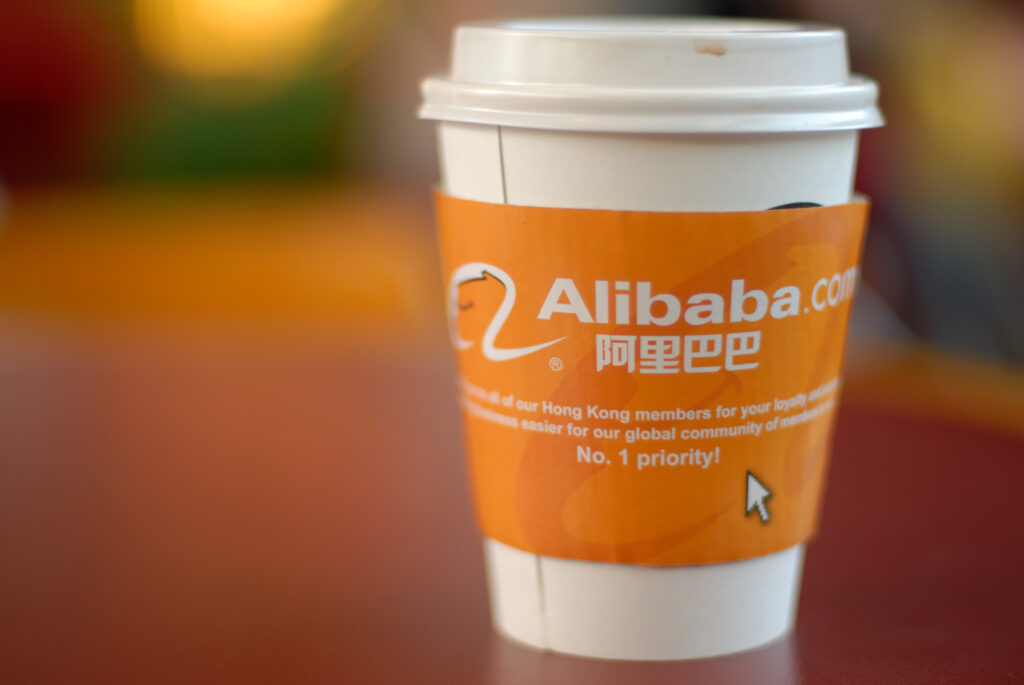When you’re looking to succeed on Amazon, you have a variety of options that can fit your specific needs. You can boost your already successful brand with the power of ads. You can engage shoppers offsite and channel them to Amazon with social media efforts. Or, if you don’t have your own product, you can find success with Alibaba to Amazon FBA with the power of dropshipping. Don’t leave any potential on the table, read on and find new ways to grow your business on Amazon.
Understanding Alibaba
First things first: before you start using a tool, you should understand what it is, including its advantages and disadvantages.
Alibaba, founded in 1999 by Jack Ma, is a Chinese multinational conglomerate specializing in ecommerce, retail, internet, and technology. It operates various platforms, with Alibaba.com being the largest and most prominent B2B marketplace. It connects millions of suppliers and buyers from around the world, offering an extensive range of products at competitive prices. As it has grown, it consistently updates its seller offerings for ease of use, like implementing its mobile app.
Why Sellers Use Alibaba
There are several compelling reasons why sellers turn to Alibaba as their sourcing partner:
- Vast Supplier Network: Alibaba boasts an extensive network of verified suppliers, manufacturers, and wholesalers from diverse industries, making it a treasure trove of product options.
- Competitive Pricing: Due to its direct connection with manufacturers and elimination of intermediaries, Alibaba offers competitive pricing, enabling sellers to maximize profit margins.
- Product Customization: Alibaba enables sellers to work closely with suppliers, allowing for product customization, branding, and private labeling, providing a unique selling proposition on Amazon.
- Variety and Scalability: With millions of products across various categories, Alibaba offers unparalleled scalability for sellers looking to expand their product offerings on Amazon.
How Alibaba Supports Amazon Efforts
Alibaba and Amazon are not direct competitors but rather complementary platforms. Amazon sellers turn to Alibaba for several reasons.
Alibaba serves as an invaluable resource for finding quality products at competitive prices, facilitating the process of sourcing inventory for Amazon sellers. That means, even if you have limited capital you can start selling on Amazon right away because you do not need to design a product or source more expensive items.
You can trust your suppliers. Alibaba employs a rigorous verification process, ensuring that suppliers listed on their platform are reliable and trustworthy. This reduces the risk of dealing with unscrupulous suppliers for Amazon sellers. This saves you time, money, and hassle over the long-term.
Alibaba’s Trade Assurance program provides a level of security by offering buyer protection, including product quality control, on-time shipment, and refund options. This instills confidence in sellers when purchasing from Alibaba suppliers.
Lastly, if you want to take your product list even further, Alibaba offers great wholesale opportunities. It allows sellers to purchase products in bulk quantities, facilitating inventory management and ensuring a steady supply to meet the demand on Amazon.
Potential Challenges of Using Alibaba to Amazon FBA
- Language and Cultural Barriers: Alibaba is primarily a Chinese platform, and many suppliers may have limited proficiency in English. Communicating effectively and resolving issues can be challenging due to language and cultural differences. Misunderstandings and miscommunication can lead to delays, quality issues, or even loss of business.
- Product Quality Concerns: Despite Alibaba’s efforts to verify suppliers, there is always a risk of encountering low-quality or counterfeit products. Conducting thorough due diligence, requesting product samples, and performing quality control inspections are crucial to mitigate this risk. However, there is still a possibility of receiving subpar products that may negatively impact your reputation on Amazon.
- Minimum Order Quantities (MOQs): Suppliers on Alibaba often require minimum order quantities to make bulk production cost-effective. If you’re a small-scale or new Amazon seller, meeting these MOQs can be challenging. It may result in excess inventory, tie up capital, and increase storage costs if the products don’t sell as anticipated.
- Shipping and Logistics Challenges: Coordinating shipping logistics from Alibaba’s suppliers to Amazon’s fulfillment centers can be complex. Factors such as transportation costs, customs regulations, and documentation requirements can lead to delays and additional expenses. It’s crucial to have a clear understanding of shipping terms and engage with reliable logistics partners to ensure timely delivery.
- Intense Competition: Alibaba is a popular sourcing platform for Amazon sellers, which means that the products you find may also be available to other sellers. This can lead to increased competition, price erosion, and limited opportunities for product differentiation. It becomes crucial to develop a unique selling proposition or explore niche markets to stand out from the crowd.
- Intellectual Property Risks: Protecting intellectual property rights can be challenging when dealing with suppliers on Alibaba, particularly in regions with less stringent intellectual property regulations. There is a risk of encountering counterfeit or infringing products that may result in legal issues, negative customer feedback, or account suspensions on Amazon.
- Time Zone Differences: Alibaba operates in China, which can lead to significant time zone differences when communicating with suppliers. This may cause delays in responding to queries, addressing concerns, or resolving issues promptly, potentially impacting the efficiency and responsiveness of your business operations
Statistics
The impact of Alibaba on the success of Amazon sellers is evident from the following statistics:
According to eMarketer, Alibaba’s gross merchandise volume reached $1.2 trillion in 2020, highlighting the vast opportunities available to Amazon sellers.
A study by Jungle Scout revealed that 48% of Amazon sellers source products from Alibaba, illustrating its dominance as a sourcing platform.
Statista reports that Amazon’s net revenue in 2020 was $386 billion, with millions of sellers driving the marketplace’s growth and profitability.
Best Practices for Amazon Sellers Using Alibaba to Amazon FBA
Now that you understand the value of using Alibaba to Amazon FBA, it is time to use some best practices to maximize your performance.
- Thorough Supplier Research: Before engaging with a supplier, conduct thorough research, verify their legitimacy, read reviews, and request samples to ensure product quality.
- Effective Communication: Establish clear communication channels with suppliers, addressing concerns, specifications, and delivery requirements. Regular and effective communication is vital for a successful business relationship.
- Product Quality Control: Implement strict quality control measures by requesting product samples and conducting inspections. Consistently delivering high-quality products will enhance your Amazon seller reputation.
- Negotiate and Compare: Engage with multiple suppliers to negotiate pricing, minimum order quantities, and shipping terms. Always compare offers and choose the most favorable arrangement.
- Logistics and Shipping: Understand shipping terms, customs regulations, and logistics considerations to ensure smooth and cost-effective transportation of products from Alibaba to Amazon’s fulfillment centers.
- Branding and Differentiation: Leverage Alibaba’s product customization capabilities to create a unique brand identity, allowing your products to stand out in the competitive Amazon marketplace.
- Leverage Flywheel 2.0: Teikametrics’ leading AI optimization software maximizes your performance on Amazon. By improving your listings every hour based on the most accurate data, you outpace your competition while pleasing your audience. What’s more to love? Try for free today.





